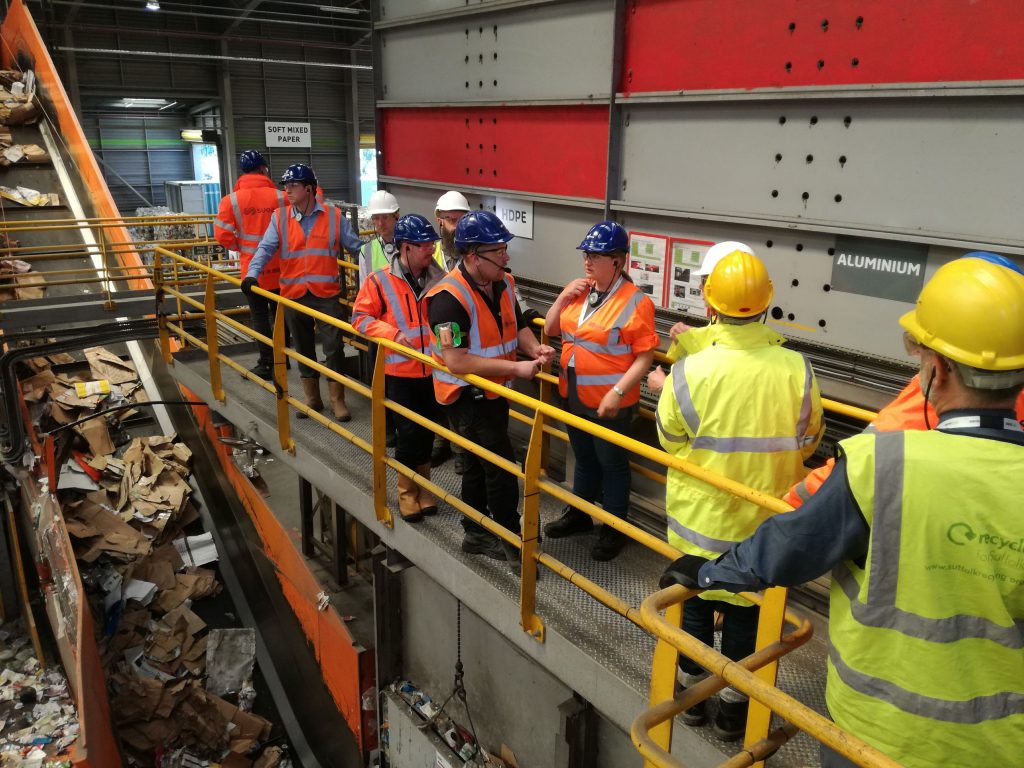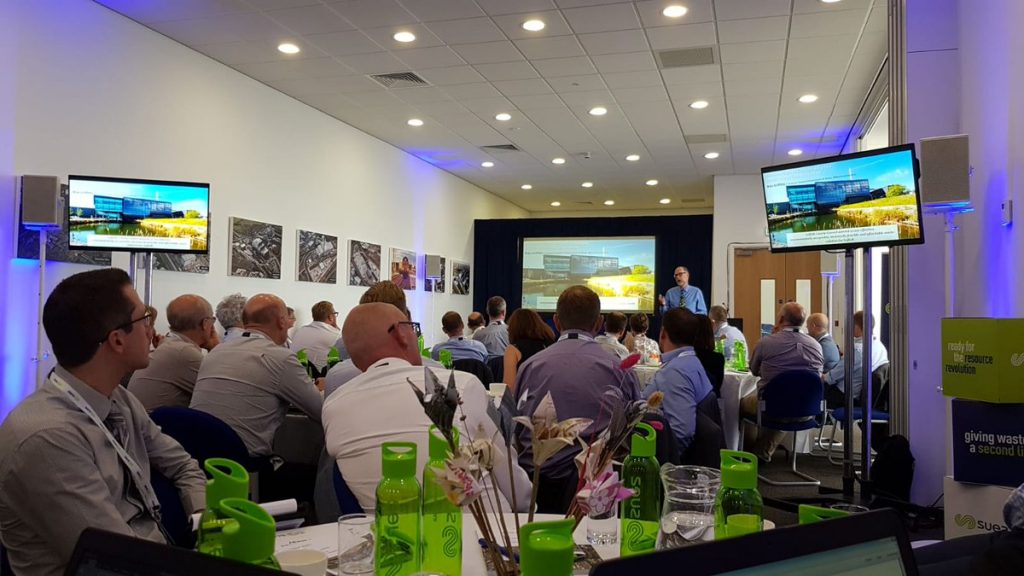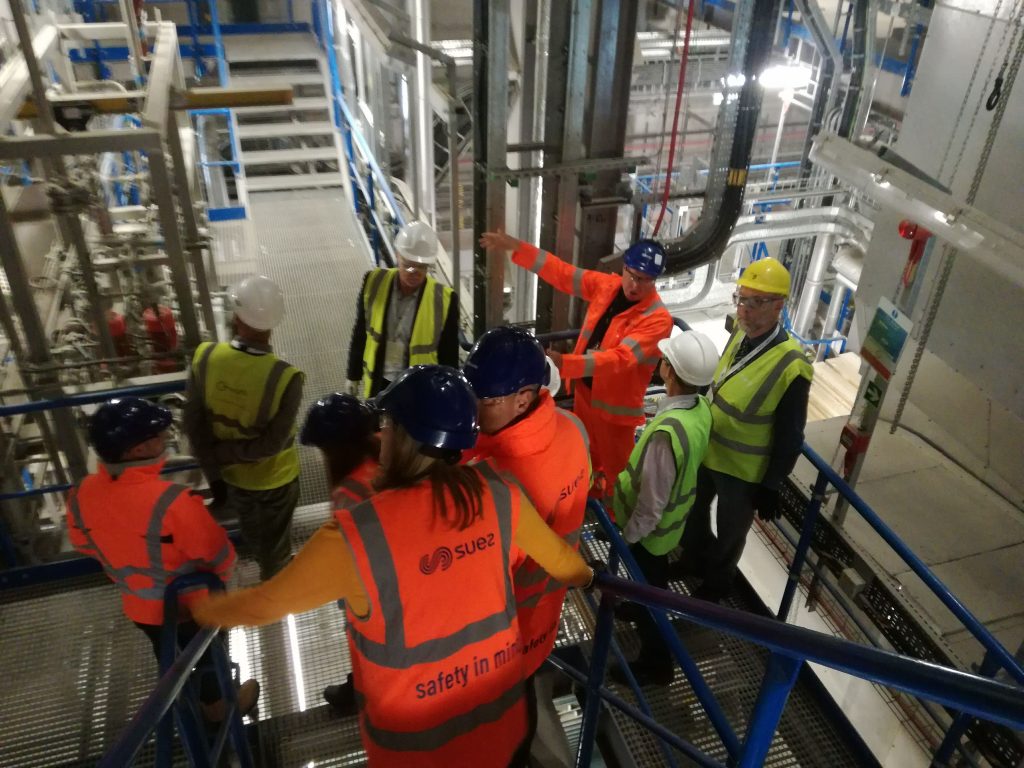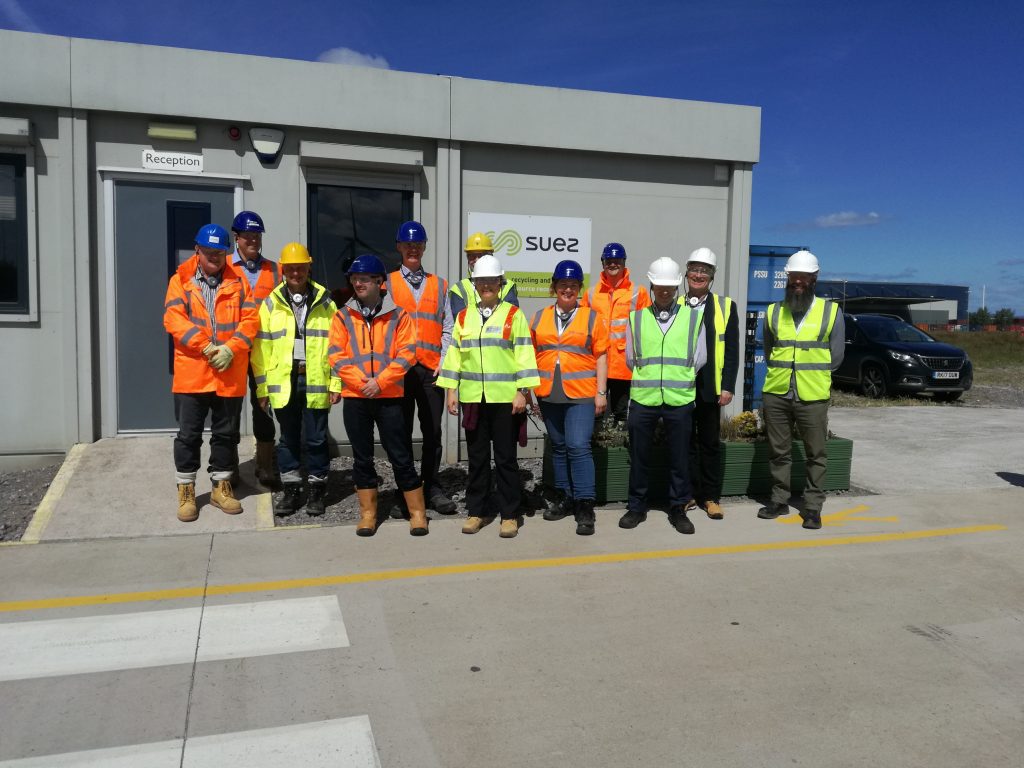How to drive continuous improvement and innovation in your local authority
9th August 2018
Posted by Dr Adam Read.
Make time for peer-to-peer networking
In today’s world of austerity, local authorities can often find it increasingly difficult to get out to conferences and workshops, due in part to budget restrictions and to time constraints. This explains the momentum surrounding webinars and the continuing demand for online news websites. However, in my experience not everything needed by municipal officers can be read in a journal, viewed on a screen or downloaded from the web. The one thing online services won’t provide is that interactive ‘peer to peer’ sharing of experiences, networking and collective learning. Traditional face-to-face workshops and seminars can still provide plenty of value in these areas.
 Given the complexities facing the sector right now, SUEZ organised a two-day event that explored some of most topical issues experienced by our public sector and municipal customers in more detail. The idea was to supply our audience with the content that would be relevant and interesting for their organisations and also to create a platform for exchanging best practice, case studies and networking with colleagues from other authorities. The agenda included updates on Brexit, China’s National Sword and the unstable global commodity markets. We also explored the need to deliver ‘more for less’ focusing on service performance, project overviews and real-life case studies presented by some of our customers and industry representatives.
Given the complexities facing the sector right now, SUEZ organised a two-day event that explored some of most topical issues experienced by our public sector and municipal customers in more detail. The idea was to supply our audience with the content that would be relevant and interesting for their organisations and also to create a platform for exchanging best practice, case studies and networking with colleagues from other authorities. The agenda included updates on Brexit, China’s National Sword and the unstable global commodity markets. We also explored the need to deliver ‘more for less’ focusing on service performance, project overviews and real-life case studies presented by some of our customers and industry representatives.
Over thirty local authorities attended our customer conference, which took place in late June.
The conference included a day of presentations, workshops and deep dive analysis which was hosted at our inspiring state of the art energy recovery centre in Severnside. On the second day attendees toured our materials recycling facility (MRF) in Avonmouth and our Severnside energy recovery centre. These facilities are both new and located on the outskirts of Bristol, the tours enabled delegates to see how some of the policy, materials and contracting issues discussed the day before play out in the real world.
Stay up-to-date with the industry
The ‘content day’, which took place on the 20 June 2018 was jam-packed with speakers addressing critical business issues, a selection of SUEZ speakers and our clients also shared their experiences and a number of well-known guests ran workshops on hot industry topics.
The first session focused on ‘continuous improvement and service delivery’. During this session we heard from West London Waste Authority about partnership working and improving services with time, WRAP spoke on introducing food waste collections. SUEZ reflected on the opportunities and risks afforded by the likely implementation of a deposit return scheme (DRS), as well as the associated extender producer responsibility (EPR) regime for local government, and the options available for harvesting target materials in the future (not relying on traditional kerbside collections or drop-off type facilities such as household waste recycling centres (HWRC)).
Overall, this first session highlighted the need for authorities to work together on delivering front line services. The discussions also showcased the value of working more effectively with their delivery contractors, and most importantly the need for local government to stay abreast of likely policy, target and system changes that could change the way their services are delivered or how they might procure in the future. The breakout workshop session compared what a product and packaging manufacturer wants from a waste management system and comparing that to local authority views certainly opened our eyes to better appreciating all of the elements in complex and changing supply chains.
Session two drilled down a little more from these big policy issues and looked more closely at ‘regional infrastructure capacity and demand’. The audience heard from SUEZ about the findings of our ‘Mind the Gap’ study and the clear regional imbalances in current and future residual and reprocessing capacity across the UK. Suffolk County Council shared their insight into the role of their energy-from-waste (EfW) facility in providing regional capacity, which is supporting Norfolk County Council as they look to secure their own longer term solution. This session provoked plenty of debate about what scale and level infrastructure planning should occur, with the consensus in the room agreeing that the majority of waste and resource management infrastructure should not be locally determined.
After lunch, we looked beyond UK borders with Resource Futures providing an update on Brexit, and the risk and opportunities this process could offer to the resources sector. SUEZ gave an overview on China’s National Sword programme and the current risks to UK recycling collections and processing services. The session finished with a SUEZ-led workshop considering the future of local authority recycling and residual waste collection contract risks, market appetites and better partnership models.
This session clearly demonstrated the degree of uncertainty and potential change facing our sector from outside forces (in addition to those coming from changes to UK policy and legislation). But, it also highlighted the need for authorities to be planning for this uncertainty, whether it be through new contracts that offer them more flexibility, by assigning risk to the party best capable of managing it (so not passing all commodity risk to your contractor unless you want them to price for it) or through more active joint-working in clusters of authorities to share insights and test new delivery models through in-depth modelling and analysis.
 The final session was of a more ‘operational’ nature, but nonetheless vitally important in terms of looking at ways of ‘managing contract and service risks and delivering innovation in local service provision’. A presentation from East Devon District Council reflected on their highly successful three weekly residual waste collection service and its ability to drive enhanced recycling participation and quality. Surrey County Council shared an excellent overview of how the role of re-use shops and black bag waste sorting at Surrey’s HWRCs is helping to drive enhanced user experience and increasing overall recycling performance. The final workshop of the day, led by Ricardo, considered how authorities that are planning on coming to market in the next two years or so, can build fluid service improvements, deliver innovation, and income generation opportunities to their procurement process if they follow some best practice principles about when to engage, what to ask for and how to evaluate the bids etc.
The final session was of a more ‘operational’ nature, but nonetheless vitally important in terms of looking at ways of ‘managing contract and service risks and delivering innovation in local service provision’. A presentation from East Devon District Council reflected on their highly successful three weekly residual waste collection service and its ability to drive enhanced recycling participation and quality. Surrey County Council shared an excellent overview of how the role of re-use shops and black bag waste sorting at Surrey’s HWRCs is helping to drive enhanced user experience and increasing overall recycling performance. The final workshop of the day, led by Ricardo, considered how authorities that are planning on coming to market in the next two years or so, can build fluid service improvements, deliver innovation, and income generation opportunities to their procurement process if they follow some best practice principles about when to engage, what to ask for and how to evaluate the bids etc.
This session helped the delegates to ‘ground’ much of the higher level updates and thinking that they had engaged with, over the course of the day. As well as consider how to implement change in an affordable and low-risk way in their own authority areas or partnerships.
Seeing is believing
 After a few good hours of sleep to recharge the batteries, we were back on the bus for the first of the two site visits. The group returned to the Severnside energy recovery centre to see how a 400,000 tonnes per annum plant operates. Touring its rail bulkhead which brings 375,000 tonnes of waste a year from West London, its modern grates and effective gas clean-up systems. to the group also visited the nearby Avonmouth MRF, one of our newer and commercial materials recycling facilities, taking a mix of commercial and municipal commingled recyclables (60,000 tonnes per annum) for processing, baling and onward transport to merchants and mills.
After a few good hours of sleep to recharge the batteries, we were back on the bus for the first of the two site visits. The group returned to the Severnside energy recovery centre to see how a 400,000 tonnes per annum plant operates. Touring its rail bulkhead which brings 375,000 tonnes of waste a year from West London, its modern grates and effective gas clean-up systems. to the group also visited the nearby Avonmouth MRF, one of our newer and commercial materials recycling facilities, taking a mix of commercial and municipal commingled recyclables (60,000 tonnes per annum) for processing, baling and onward transport to merchants and mills.
It was obvious that the discussions of the day were still playing their way out in the chit-chat being had on the bus between the sites and whilst touring the facilities. The delegates were shown all of the state of the art equipment, the lean processing principles and processes that we have adopted at all our sites, and the quality products (resources) that can be delivered by modern waste management sites.
Tweet- Brexit
- customer conference
- energy recovery centre
- energy-from-waste
- local authority
- Municipal
- National Sword
- Severnside
- SUEZ recycling and recovery UK
- waste management
